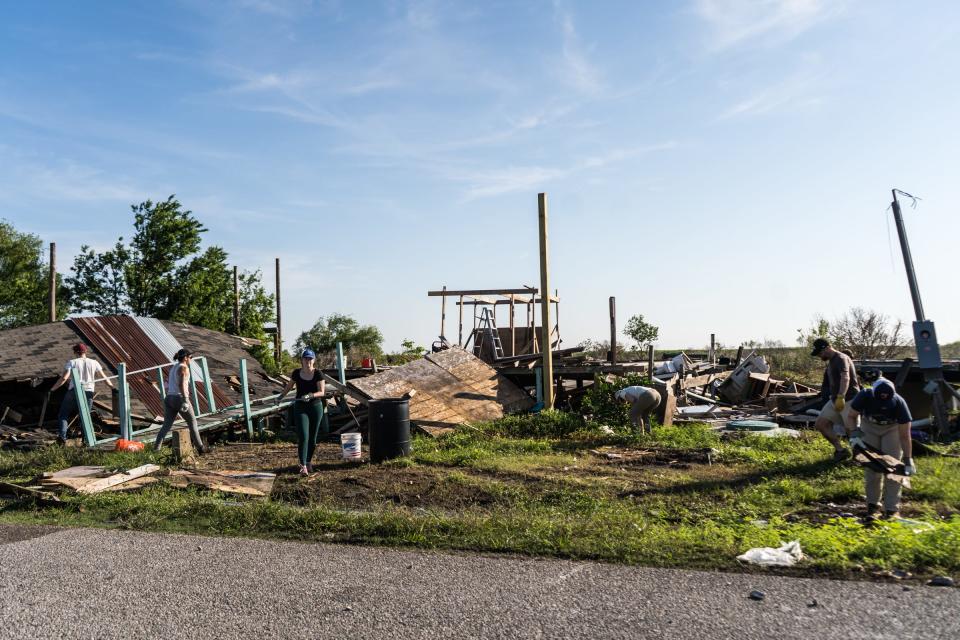Tulane researchers see promise in using recycled glass to help save Louisiana's coast
A project with roots in Terrebonne and Lafourche parishes aims to prove sand made from recycled glass can be used to help bolster Louisiana's coast against persistent erosion.
Last fall, after Hurricane Ida, Tulane University led work on a test project in Pointe-aux-Chenes and surrounding areas using a $700,000 grant from the National Science Foundation. Others participating include the Pointe-au-Chien Indian Tribe, LSU, Jackson State University and Glass Half Full, a New Orleans-based company that converts glass into sand and crushed material called "cullet" for coastal projects, construction and other uses.
Their project, called ReCoast, so far has shown the material can grow native marsh grasses and willow trees, is non-toxic to marine life and can resist erosion better than silt, reseachers say.
This week, Tulane said it will receive another $5 million from the National Science Foundation to take the project from proof-of-concept to a larger scale that could have a bigger impact on glass recycling and coastal restoration across south Louisiana.
“Solving our land-loss crisis requires the convergence of all types of ideas, and glass sand is an important part of that solution,” said Julie Albert, associate professor in Tulane's Department of Chemical and Biomolecular Engineering and the project's lead researcher. “We know what happens if we do nothing: Swamps will turn into lakes, homes and businesses will literally be washed away with the land, and the intrusion of salt water into freshwater areas will kill wildlife, all further hastening coastal land loss.”
Over the next two years, teams will work to refine their ideas into prototypes, Albert said in a news release. Organizers hope the project will attract investment in glass recycling and coastal restoration, adding that learned may apply beyond those goals to other environmental issues.
Related:Louisianans have tried to tame the Mississippi River for decades. Now they may set it free
Previously:Newly restored barrier islands now helping to protect Terrebonne and Lafourche from storms
Aside from Pointe-aux-Chenes, teams have demonstrated the efficacy of their glass-to-sand initiative at Big Branch Marsh National Wildlife Refuge in Lacombe.

“Coastal erosion negatively impacts the livelihoods of residents in coastal communities and reduces the resilience of inland communities to withstand rising sea levels and increasingly severe storms,” said Franziska Trautmann, a Tulane chemical engineering graduate and co-founder of Glass Half Full. “Our solution aims to protect and restore our coasts while supporting the economies of coastal communities."
Courier and Daily Comet Executive Editor can be reached at 857-2201 or keith.magill@houmatoday.com.
This article originally appeared on Daily Comet: Project shows promise of using recycled glass to save Louisiana coast

